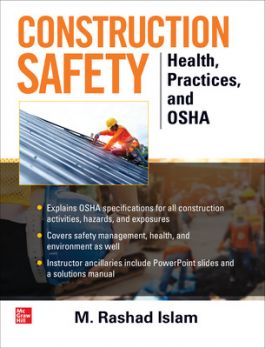CSB calls for tougher safety regs for refineries
New video shows how 2010 Tesoro refinery accident happened
The U.S. Chemical Safety Board (CSB) has released a safety video into the fatal April 2, 2010, explosion and fire at the Tesoro refinery in Anacortes, Washington. The accident occurred during startup of the refinery’s “naphtha hydrotreater unit” after a maintenance shut down. A nearly 40-year-old heat exchanger violently ruptured, causing an explosion and fire that fatally injured seven workers – the largest loss of life at a U.S. refinery since 2005.
The 14-minute safety video entitled “Behind the Curve” includes a 3D animation of the events that led up to this tragic accident as well as interviews with the CSB’s investigators and chairperson.
State and federal regulations need improvement
CSB Chairperson Dr. Rafael Moure-Eraso said his agency is “seriously concerned” by the number of deadly refinery accidents in recent years. “We have concluded that extensive improvements must be made in how refineries are regulated at the state and federal level.”
The CSB’s investigation found an immediate cause of the tragedy to be long-term, undetected High Temperature Hydrogen Attack (HTHA) of the steel equipment, which led to the vessel rupture on the day of the accident. The industry’s standard for determining vulnerability of equipment to HTHA, to be inadequate.
In the video Investigator Lauren Grim discusses HTHA, stating: “High temperature hydrogen attack, or HTHA, – is a common hazard that has long been known within the petrochemical industry. However, Tesoro engineers and corrosion experts did not believe it could occur within the heat exchanger that ultimately failed.”
A substandard safety culture
The CSB’s investigation report, approved in May 2014, is one of the most extensive and complex refinery explosion investigations. The investigators also reported their findings of a substandard safety culture at Tesoro, which led to a complacent attitude toward flammable leaks and occasional fires over the years. The agency found that the complexity of the startup procedure typically required more than just the one outside operator. Yet operating procedures were not updated to account for the role of additional personnel during the hazardous non-routine work.
Recommendations in these areas were made to both the industry group which issues guidance on HTHA, the American Petroleum Institute (API), as well as to Tesoro.
"Lives would have been spared"
Investigator Dan Tillema says, “The CSB found that if Tesoro had a strong safety culture, it would have addressed the ongoing leaks and defined a reasonable number of essential personnel for the startup activity. Had Tesoro done these things, we concluded that fewer workers would have been present on the night of the accident, and lives would have been spared.”
Recommendations
The CSB’s final report also recommended that the governor and legislature of the State of Washington significantly strengthen the oversight of refineries. Specifically, the Board called on the state to require refineries to:
- conduct more comprehensive hazard analyses and damage mechanism reviews;
- document the effectiveness of process safeguards;
- increase the role for worker representatives in process safety management
- have company safety reviews examined by technically competent regulators
Chairperson Rafael Moure-Eraso said, “Seven lives were lost at Tesoro. It should not have happened. Companies, workers, and communities would all benefit from a more rigorous regulatory system that is focused on continuously lowering risks.”
Looking for a reprint of this article?
From high-res PDFs to custom plaques, order your copy today!







.jpg?t=1721257160)
